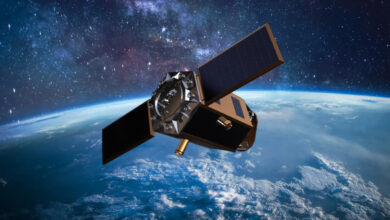Scientists Have Announced: Finding Aliens Is Only A Matter Of Time
Many astronomers no longer question whether life exists elsewhere in the universe. Instead, they are looking for the answer to "when" we will find life. Many scientists are optimistic that we will discover traces of extraterrestrial life in the next few years.

The US National Aeronautics and Space Administration’s (NASA) James Webb Space Telescope (JWST) recently detected promising hints of life on a planet outside our Solar System.
The sheer number of space missions underway or about to begin suggests that a new space race is underway for the greatest scientific discovery of all time.
Prof. Catherine Heymans, head of the Royal Observatory of Scotland, said, “We live in an infinite universe, filled with infinite stars and planets. And many of us are convinced that we cannot be the only intelligent life out there. We now have the technology and the ability to answer the question of whether we are alone in the universe.”
‘GOLDLOCKS ZONE’
Telescopes can now analyze the atmospheres of planets orbiting distant stars, looking for chemicals known to be produced on Earth only by living organisms.
The first sign of such a discovery was detected earlier this month.
The first sign of a gas produced by simple marine organisms on Earth has been detected in the atmosphere of the planet K2-18b, 120 light-years away.
The planet is located in what astronomers call the “Goldilocks zone”.
The planet is far enough away from its star that its surface temperature is neither too hot nor too cold, and far enough away that the water needed to support life can be found in liquid form.
The team that made the discovery hopes to know within a year whether the exciting clues have been confirmed.
“In The Next Five Years There Will Be A “Major Transformation” In What We Know About The Universe”
Prof. Nikku Madhusudhan of the Institute of Astronomy at the University of Cambridge, who led the research, said that confirming the clues would “radically change what we know about the search for life”.
“If we find traces of life on the first planet we investigate, it will increase the likelihood that life is widespread in the universe,” Madhusudhan told the BBC.
He predicts a “major transformation” in what we know about the universe in the next five years.
If his team fails to find traces of life on K2-18b, they will continue their search with an initial 10 planets in the Goldilocks region and possibly more later.
Even the absence of any sign of life “will provide important insights into the possibility of life on such planets”
His project is just one of many looking for traces of life in the universe.
Some of these projects explore planets in the Solar System, others much farther out into deep space.






